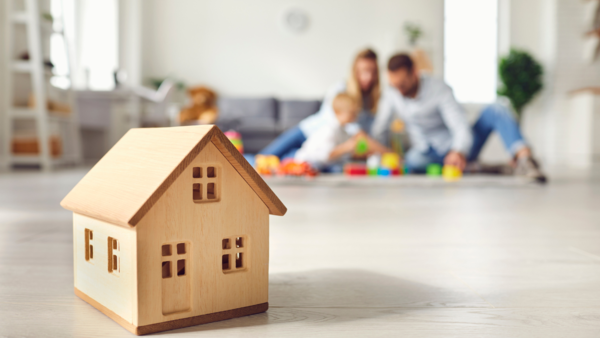
[ad_1]

When it comes to keeping kids safe at home, many parents believe that home is the safest place. But for many children, unexpected dangers may lurk in the home. This is what reports say domestic accidents Involvement of children is a growing concern, with falls, burns and accidental poisoning being among the most common incidents in Indian homes. According to a study in the Indian Journal of Pediatrics, about 60% of childhood injuries occur in the domestic environment. Here are 6 essentials security checkbox To help ensure that baby stays safe, whether the house is big or small.
Avoid unwanted or unsafe contact in a joint family
one in joint family setup, children benefit from being surrounded by grandparents, aunts, uncles and cousins, but the presence of a large group can also increase safety risks. Since family members often host visitors, parents should ensure that children are only in the company of trusted individuals. Be sure to communicate with family members to establish guidelines for supervising children, especially when guests are around. Set limits for the rooms that children can enter, especially in situations where they may encounter unfamiliar people.

Keep dangerous electronics and devices out of reach
Every home, regardless of family size, likely has many electronic devices and home appliances. These items can be dangerous if left unattended. Cords, chargers, hot irons and kitchen appliances should be kept out of the child’s reach. According to research published in Curious, in India, burns, bruises and superficial injuries account for 15% of injuries, while fractures account for 19%. Use plug covers and keep electrical appliances unplugged when not in use. If possible, set up designated areas for gadgets so kids can move around freely without risk of injury.
Safe Gas Lines and Cooking Areas
Kitchens are high-risk areas, especially where gas cylinders and open flames are present. Gas leakage is not uncommon in Indian homes, so it is important to ensure regular maintenance of gas lines and appliances. Install a childproof gate at the kitchen entrance if children are too young to understand the risks associated with cooking appliances. In joint families, where multiple members may use the kitchen, make it a rule to switch off gas and any cooking appliance immediately after use. This small habit can prevent potential accidents and keep the home environment safe.
Make sure locks are safe for children but accessible in case of emergency

Door and window locks are another essential consideration. In a joint family, children can easily wander from one part of the house to another, sometimes even moving out. is setting up childproof locks Baring external doors and windows is an effective way to prevent children from roaming outside unsupervised. In homes where children live with fewer adults, it is equally important to make the locks accessible in case of an emergency. To ensure children don’t accidentally lock themselves inside, parents may want to install kid-safe locks on certain rooms, such as storage spaces or balconies.
Make balconies and windows child-friendly
Balconies are common in homes, especially apartment buildings, and they can pose serious risks to children. The balcony railing should be high enough that children cannot easily climb over it and the space between the bars should be narrow. If you have small children who like to move around, consider adding a safety net or screen. For windows, install stoppers that prevent them from opening more than a certain height. In a joint family, make sure all family members are aware of the balcony restrictions so that everyone is on the same page about keeping these areas safe.
16 etiquette your child must know!
Be careful of the neighborhood and surrounding area
A safe neighborhood can have a positive impact on a child’s safety. If you’re in a busy area, make sure doors remain closed, and talk to your child about limits on going out. Choose neighborhoods with low crime rates and community monitoring programs, if possible. In joint families, it may be beneficial to appoint specific family members to keep an eye on the children when they play outside. Educate your child to be wary of strangers and set limits for outdoor play areas.
[ad_2]
Source link



![NZ v AUS [W] 2024/25, New Zealand Women vs Australia Women 2nd ODI, Wellington Match Report, December 21, 2024 NZ v AUS [W] 2024/25, New Zealand Women vs Australia Women 2nd ODI, Wellington Match Report, December 21, 2024](https://i3.wp.com/img1.hscicdn.com/image/upload/f_auto/lsci/db/PICTURES/CMS/393400/393416.6.jpg?w=1200&resize=1200,0&ssl=1)




